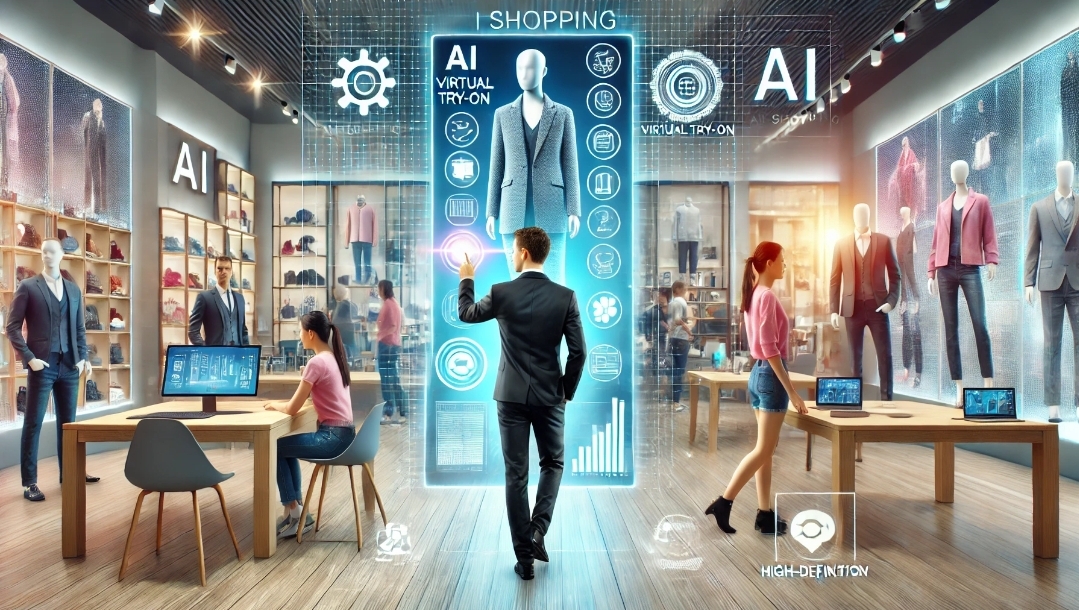Remember the days of endless scrolling, irrelevant search results, and frustratingly generic recommendations? The online shopping experience often felt more like a chore than a pleasure. But a quiet revolution has been shopping, and it’s being led by a new digital companion: the AI shopping assistant market.
These intelligent agents are not the old-school chatbots. Powered by a potent mix of natural language processing (NLP), machine learning, and computer vision, they are transforming the retail landscape, offering a level of personalization and efficiency that was once the exclusive domain of human personal shoppers. Recently, on September 02, 2025, Amazon launched a real-time visual search feature, Lens Live, integrated into its shopping app. This allows users to point their phone cameras at objects and instantly see a carousel of matching or similar products, making visual product discovery more intuitive and efficient. This is more than just a trend; it’s a market on the verge of explosive growth.
A Snapshot of Numbers
The AI shopping assistant industry is no longer in its infancy. It’s a multi-billion-dollar market that is accelerating at a staggering pace.
- Current Value: The global market was estimated at USD 3.36 billion in 2024, projected to grow to an astonishing USD 4.25 billion in 2025.
- Future Projections: Analysts predict a massive leap to approximately USD 28.54 billion by 2033, expanding at a compound annual growth rate (CAGR) of 26.9%. This isn’t just growth; it’s a fundamental shift in commerce.
What is Driving This Growth?
Several powerful trends fuel the meteoric rise of the AI shopping assistant:
- The Demand for Hyper-Personalization: Shoppers are no longer satisfied with a one-size-fits-all experience. They expect brands to understand their preferences, purchase history, and current mood. AI assistants deliver this by analyzing vast datasets to provide tailored product recommendations that feel genuinely helpful and intuitive. AI assistants are also moving beyond basic product recommendations to managing customer loyalty. They can redeem loyalty points automatically and offer highly tailored perks based on a shopper’s preferences, leading to greater customer retention.
- E-commerce Expansion and Digital Transformation: The continued global shift to online shopping has created a fertile ground for AI solutions. As more businesses move their operations online, they seek scalable, automated tools to enhance customer engagement and boost conversion rates.
- Technological Advancements: The rapid evolution of AI, particularly in areas like Generative AI and multimodal capabilities, has made these assistants more sophisticated and human-like. They can now handle complex queries, understand nuances in language, and even process visual information like an image of a shirt a customer wants to find.
- The Rise of Conversational and Visual Commerce: Beyond traditional text-based chatbots, the market is seeing a surge in voice-activated assistants and visual search tools. Customers can now simply talk to their devices or upload a photo to find exactly what they’re looking for, making the shopping journey more seamless and natural than ever.
The Key Players and Their Innovative Approaches
The AI shopping assistant landscape is a vibrant ecosystem of major tech giants and innovative startups vying for a slice of the pie.
- Amazon’s Rufus: Embedded directly into the e-commerce giant’s search bar, the February-launched Rufus is a prime example of an integrated assistant. It uses a combination of generative AI and massive customer data to provide personalized suggestions and real-time guidance, setting a new benchmark for customer engagement.
- eBay’s ShopBot: As one of the early pioneers, eBay’s ShopBot on Facebook Messenger showed the potential of conversational commerce, allowing users to find products through natural, chat-based interactions.
- Shopify’s Ecosystem: Platforms like Shopify have become a hub for third-party AI assistants. Startups like Alhena AI, AskTimmy AI, and Rep AI are developing specialized solutions to help direct-to-consumer (DTC) brands enhance their customer experience and drive revenue.
- The In-Store Experience, Reinvented: AI isn’t just for online shopping. Brands are also exploring using AI assistants to enhance the in-store experience, from providing information on product pages to acting as a knowledgeable virtual sales associate.
Looking Ahead: The Future of Shopping is Intelligent
The AI shopping assistant market is on an upward trajectory, and its future is brimming with potential. We can expect to see:
- Multimodal Dominance: Assistants will increasingly combine text, voice, and visual inputs to create a truly immersive and intuitive experience. Building on its AI shopping assistant launch, Warby Parker partnered with Google on May 20, 2025, to develop a line of AI-powered smart glasses. This collaboration aims to create intelligent eyewear that incorporates multimodal AI and offers a new way for users to interact with the world and shop.
- Deeper Integration: AI assistants will become more deeply integrated with every aspect of the shopping journey, from pre-purchase discovery to post-purchase support and logistics. On January 10, 2025, NVIDIA introduced a generative AI reference framework designed to revolutionize online and in-store shopping. Built on their Omniverse and AI Enterprise platforms, this blueprint provides developers and retailers with the tools to build AI assistants that enhance human staff support and create a more seamless shopping experience.
- In-Store Integration: The gap between virtual and physical retail is shrinking. AI-powered smart mirrors and screens are being used in stores to offer augmented reality (AR) try-ons, show product information, and even suggest complementary items, bridging the convenience of online shopping with the tactile experience of a physical store.
- Creative and Contextual Search: Instead of simple keyword searches, AI assistants are helping users with more complex queries. Shoppers can ask for “gift ideas for a friend who loves hiking and sustainability” or “what do I need to re-stain my deck?” and receive a curated list of products and recommendations, mimicking the expertise of a human sales associate.
The era of “browsing” is being replaced by the age of “discovering.” The AI shopping assistant is no longer a novelty; it is necessary for businesses looking to stay competitive and a welcome guide for shoppers seeking a more efficient and personalized experience. The future of retail is intelligent, and it’s already here.
















